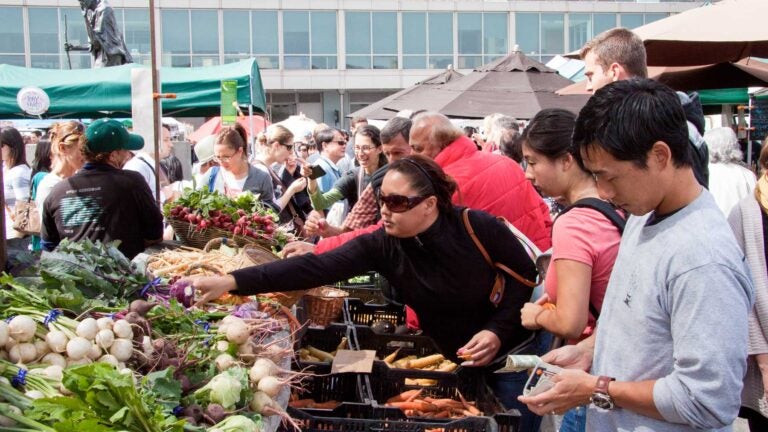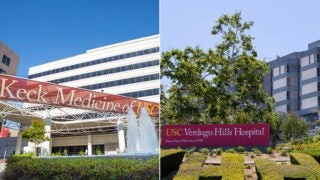
Healthy food incentive program helps low-income families, local farmers
Giving people an incentive to use their federal food benefits at farmers’ markets encourages them to buy fresh fruit and vegetables
More than 4 million people in California are receiving government nutrition-assistance benefits through the CalFresh program, formerly known as the Supplemental Nutrition Assistance Program. With an assist from USC Price School of Public Policy Professor Howard Greenwald, the Ecology Center in Berkeley is encouraging low-income families to spend these benefits on healthy food options.

Greenwald is serving as lead investigator to evaluate the effectiveness of a two-year expansion of the Ecology Center-led Market Match program, which used a Food Insecurity National Incentive (FINI) grant from the U.S. Department of Agriculture to double CalFresh customers’ buying power when purchasing fruit and vegetables at farmers’ markets and other farm-direct locations.
“There is public health research that indicates when people do get federal food support, the food they get is not particularly healthy and that federal food programs contribute to obesity because people stretch the dollars by buying high-carb shelf items,” Greenwald said. “The concept is by giving people, who are beneficiaries of federal food programs, special incentives to utilize their benefits at farmers’ markets, they would be encouraged to include more fresh fruit and vegetables in their family’s diets.”
Legislators recently passed the California Nutrition Incentives Act to expand programs like Market Match with $5 million in state funds. In June, Gov. Jerry Brown approved the funding for the program, which is expected to attract federal matching from FINI.
Nutritional benefits
Last year, the Ecology Center led California nonprofits — without help from the state — to raise $3.7 million in private funds and in-kind contributions to secure the federal FINI dollars for two years. After one year of FINI funding, Market Match has served 105,518 CalFresh shoppers, who spent $2.46 million in CalFresh and Market Match, which went to 1,602 small farmers across the state.
With the help of two USC Price graduate students — Yamilett Medrano from the Master of Health Administration program and Ana Delgado from the Master of Public Policy program — Greenwald generated a preliminary report with data recorded from a consumer survey conducted at farmers’ markets, a farmer survey, interviews of program and market managers, and direct observation of markets.
Out of 844 shoppers surveyed, 74.1 percent reported increasing the quantity of fresh fruit and vegetables purchased, and nearly 80 percent indicated that their family’s health had improved as a result.
New business boon for farmers
“Dr. Greenwald’s support and expertise has been invaluable,” said Carle Brinkman of the Ecology Center. “Our collaboration with him on the FINI grant has enabled us to better evaluate our processes and outcomes. His analysis helped us to underscore the efficacy of SNAP healthy food incentive programs and their impacts on low-income customers, small and mid-sized farms, and farmers’ markets across the state.”
Greenwald’s research showed that local farmers and businesses are also benefiting from the program. More than 80 percent of farmers reported increased sales due to Market Match, and nearly 40 percent indicated that this demand was leading them to increase the scope of their operations. This could also encourage farmers’ markets to expand their hours and days of operation, which would be helpful for consumers.
“In general, research done at the Price School has the objective of promoting evidence-based public policy,” Greenwald said. “If we can demonstrate that these incentives produce health-promoting behavior, we believe that would encourage the continuation or perhaps expansion of the program, which will produce better health for those who use it. And if it’s producing better health, it’s saving money because health care is expensive.”



